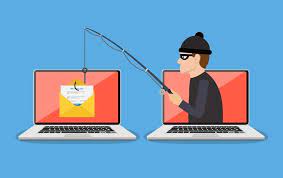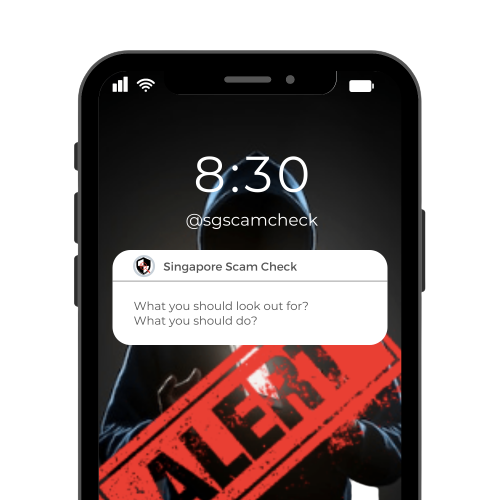
What is a Phishing Scam?
Victims receive a call informing them that they have won a lucky draw. To claim the prize, the victim must provide their passport details or other personal information.
In another phishing scam, fake websites are created to look identical to the actual websites but with a slightly different web address. Should victims input their personal details and PIN numbers to these websites, their information and money are at risk.

- WHAT YOU SHOULD LOOK OUT FOR…
- WHAT YOU SHOULD DO…
- Phone calls from anyone telling you that you have won a lucky draw. Legitimate organisations typically notify winners via written means such as email or an official letter, in addition to a phone call. If in doubt, contact the organisation for verification
- Fake emails. Check the email address of the sender and look out for spelling or grammar mistakes. These are signs of a scam email
- Official-looking emails that do not address you by name. Spam emails are usually sent out en masse
- Never give out personal information such as your bank account or credit card numbers via email
- Never disclose PIN numbers, user account IDs, passwords or credit card details over email
- Delete suspicious emails and ignore phone calls from people making claims about the use of your name
- Be aware that no email service provider, bank, financial institution or website administrator would email customers to verify or ask for their account information, password or PIN
- Hover your mouse over the link in the email to check the destination address. If the address doesn’t lead you back to the website you are expecting, it is likely to be a phishing attack
- Never input sensitive information to pop-up windows from emails or websites
- Never download or open attachments in emails from unfamiliar sources
- Never feel pressured to reveal your personal information online
- Protect your computer or device with a firewall, spam filters and up-to-date anti-virus software
- Look for the secure symbol in the URL. Secure websites use ‘https’ rather than ‘http’ at the start of the address, or a closed padlock or unbroken key icon at the bottom right corner of your browser window. Legitimate websites are generally encrypted to protect your details


